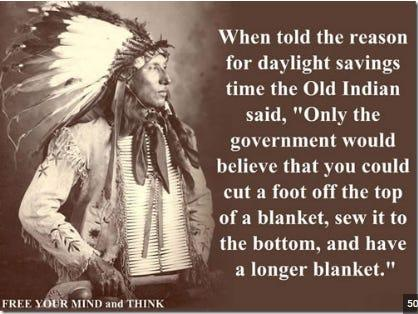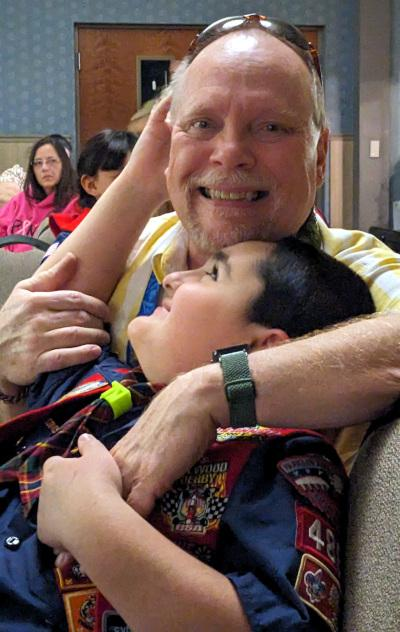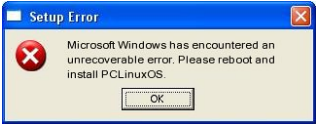| Previous
Page |
PCLinuxOS
Magazine |
PCLinuxOS |
Article List |
Disclaimer |
Next Page |
From The Chief Editor's Desk... |
|
Spring forward. Fall back. We just performed our biannual, ritualistic “time dance“ on March 10, 2024 here in the U.S.
GAWD! How I really, really hate “Daylight Savings Time!”
The image above is my favorite internet meme about daylight savings time. Just because you can, doesn't mean you should. To me, the meme sums up the insanity of the whole time change regimen. This isn't a U.S.-only problem, either. Other countries around the globe have something similar to the U.S.'s daylight savings time. The U.K. is another, the EU is yet another, and I'm sure there are others. To be perfectly honest, I don't want to waste the time looking it up to see just how many other countries participate in this foolish endeavor.
One of the “ I'm a proponent of just staying on “standard time” (e.g., NOT daylight savings time) year round. If you want “more hours of daylight,” (and you're not “creating” more hours of daylight, but rather just manipulating a man made representation of time to create that illusion), there's a very simple way to achieve that: get yo' arse out of bed! Rise and shine! Our forefathers/ancestors woke when the sun came up, and typically, slept when darkness fell (or soon thereafter). That “method” has worked exceptionally well throughout the history of humankind. I suspect it'll continue working just as well for as long as humans are around.
In some ways, daylight savings time creates problems where none existed before. Now, my young family likes to sometimes go to a drive-in movie theater. Yes, believe it or not, we still have one in the town we live in. They can't start showing the movie until it's dark outside. Because of daylight savings time, the movies don't start showing until VERY late at night. If we didn't have daylight savings time, that movie would start showing one hour earlier! That one-hour difference might be the difference between being able to go to the drive-in theater or not being able to go. If the movie started one hour earlier, we'd be able to go more often, the movie would be over one hour earlier, and we'd get one more hour of sleep. That would mean that we might actually be able to go to the drive-in theater on nights when my wife has to work the next day. Under daylight savings time, that's an impossibility due to how late the movies finish playing. But it goes deeper than personal inconveniences. There are several studies out that show how the bi-annual “time dance” affects our health in negative ways (a quick internet search will net them for you, easily). One study was recently highlighted in an article from the Atlas Obscura website. To quote from the article, “Researchers are discovering that “springing ahead” each March is connected with serious negative health effects, including an uptick in heart attacks and teen sleep deprivation. In contrast, the fall transition back to standard time is not associated with these health effects.” Yep. Pretty much what most of the other studies on the effects of daylight savings time on our physiology discovered. [SMH!] How many times do they have to study the exact. same. topic. and get the exact. same. results. before they give up on this foolishness? Virtually every single study on the physiological effects of daylight savings time come away with the very same conclusion. Since I worked for 35 years in health care, I have been acutely aware of these effects of daylight savings time, and the studies that supported those effects. I spent many years (about 1/3 of my work time) working the night shift, where the bi-annual time dance really didn't have much effect. But, the other 2/3 of the time I was working, it was on the day shift, where daylight savings time has a real effect. Yes, just as the studies showed, we were much busier at the hospital in the days right after the “spring forward” nonsense, seeing patients suffering negative health effects that could easily be traced back to the time change. Manipulating the clock also messes with our natural circadian rhythms. Our body isn't saying it's time to get up, but rather it's your alarm clock. Your body wants (and probably needs) that extra hour of sleep. Like I mentioned before, humans are hardwired to get up when the sun comes up, and to go to bed after the sun goes down (or shortly thereafter). Yes, humans are adaptable if they're nothing else. But doesn't life, in general, give us enough things to “adapt” to all by itself? Why do we feel the need to add in another “adaptation” … twice a year, no less! … that's entirely avoidable and unnecessary? And then, to top it all off with a cherry on top, they keep trying to tout the “benefits“ of daylight savings time that have NEVER materialized, and despite a multitude of academic and medical studies that illustrate the negative influences of manipulating our clocks twice a year.
********************
This month's magazine cover is an image from our very own The CrankyZombie. He posted this excellent image of Magnolia blossoms on March 9, 2024.
********************
Until next month, I bid you peace, happiness, serenity, prosperity … and continued good health!
|





